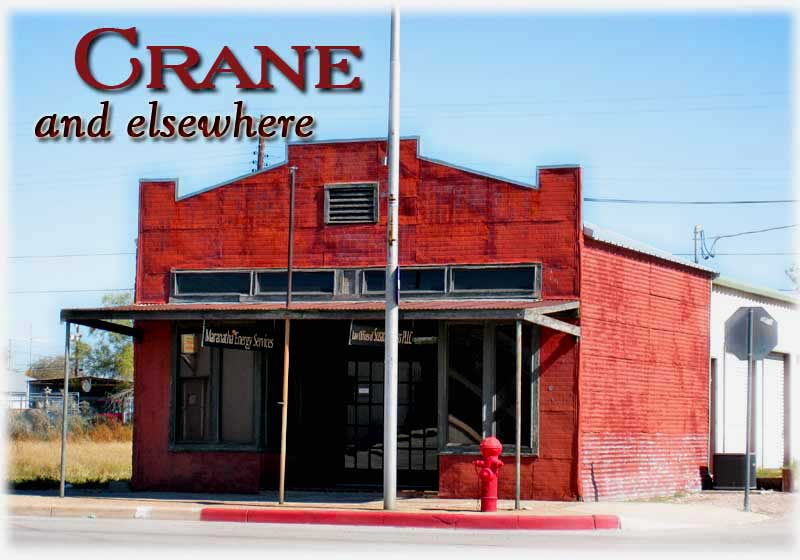A fire siren sounded—
“The fire is on South Katherine, near the high school.
Just look for the smoke.”
![]()
[2col1]THE town was small enough that almost wherever you lived, you could hear the fire siren whenever it sounded. Small towns are like that, and in that respect, I suppose, Crane was no different. Parts of Crane, though, like the Gulf Camp, were too far away for the siren to reach. but not too far away for small talk to meander its way along quiet streets.
It was a spring day and the sun shone bright that early morning across the West Texas plains. People drank coffee at Ray’s drugstore. Across the street, old men sat in Gordon’s barbershop, telling stories they had told a hundred times before, and sometimes to the same people. Life with all its small town excitement went on as usual when the sound of a siren pierced the air.
‘The fire is on South Katherine,” the dispatcher said, “near the high school. Just look for the smoke. You’ll see the fire.” The one fire truck rushed three blocks and then, turned on to South Katherine. Heavy grey smoke billowed out of the screen door and open windows. It looked bad, but there were no flames as yet.
Ronnie was the first to put on his oxygen mask and tank and soon, along with another volunteer fireman, waded into the thick darkness, pulling a hose behind them, trying to rescue anyone who might be inside. The adventure had begun. Others rushed around to the back of the house, carrying an axe and preparing to chop a hole in the roof. The hole would give the fire full ventilation, freeing the house from the impenetrable smoke.
“Wait, wait,” Carl shouted from the fire truck, waving his arms in the air, “Don’t use the axe yet. Don’t use the axe. Some of the smoke is clearing. We’ve put a fan or two inside, but we can’t find any flame.” The fans soon cleaned the air, and soon the entire fire department was inside the small white house, searching for the elusive fire, but the fire remained inscrutably invisible. There was smoke, but there was no fire, no heat. Nothing seemingly had burned. Smoke still bellowed out of the house, but now the visibility was clear enough, you could see through the entire length of house from the small front porch through the living room, past the kitchen, and into the back yard.[endcol] [2col2]Outside a woman had driven up in a car. She was crying, loudly crying. The house was her house. Everyone felt bad for her. Everyone understood. Neighbors did what they could to console her, but still she cried.
By then, the fans had cleared almost all of the smoke from the small house. Yet, no one could find the fire. One of the men, though, in an oxygen mask thought he might have seen a small wisp of smoke coming from an oven. He paused and then opened the small oven door. Smoke filled the room once again. It was someone’s supper, a roast, a pot roast. He pulled the pan and the charred roast from the oven and made his way toward the front door. People gasped as he brought the roast outside and the smoke with it.
In fact, he brought the smoking roast directly to the woman who was crying but now was looking completely bewildered by the on goings of the moment. Holding the roast and pan in one hand, he lifted up his mask, “M’am, do you suppose the roast has cooked long enough?”
Such it was and such it is in Crane and elsewhere, where towns are small, people are friendly, and the sky is large on all sides of a distant horizon.
—James Sanders
[endcol] [clearcol]
